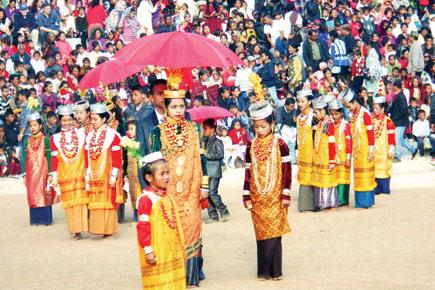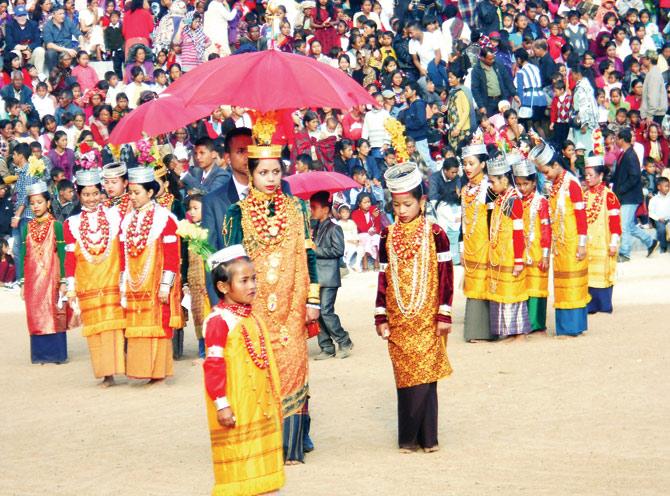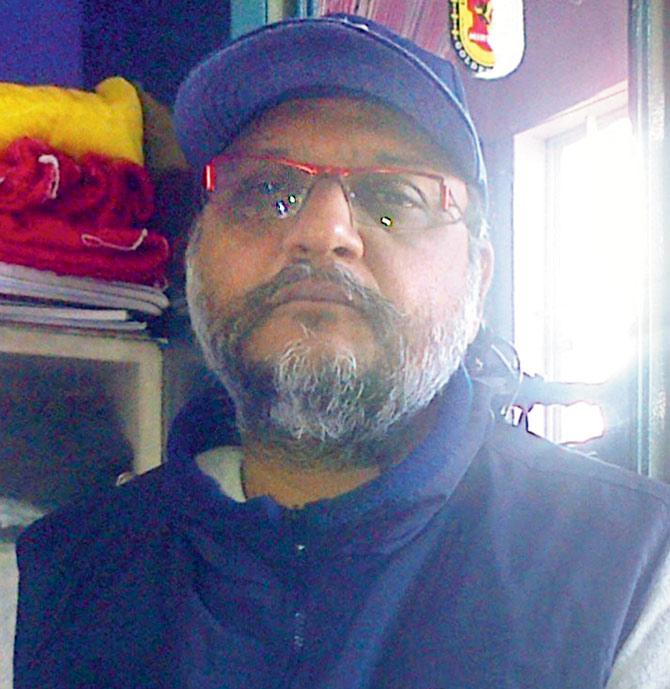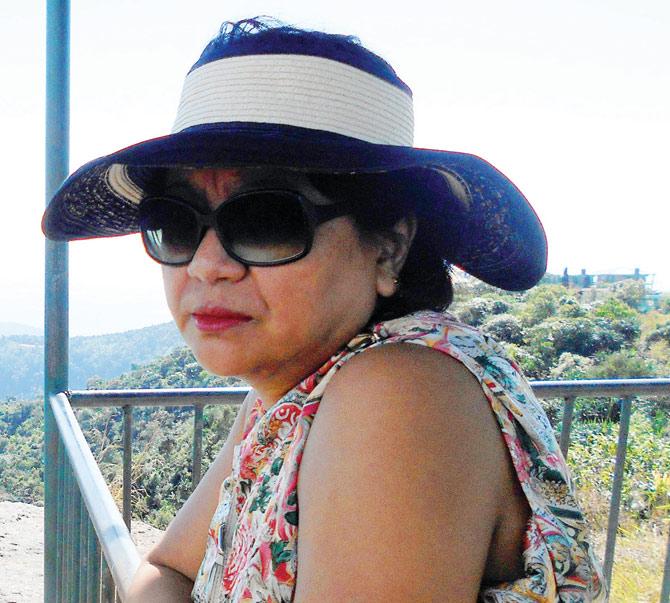A documentary that premieres in the city tonight discusses the Khasi matrilineal clans of Meghalaya and questions if they are really better off in a country that’s desperate for the male child

The Nongkrem Festival in Meghalaya
![]() As we hear the rustic sounds of drums reminiscent of the Nongkrem festival, indigenous to the Khasi tribe of Meghalaya, the camera focuses on a Khasi woman, who says, "When they look at a matrilineal system, the country looks at it through one lens — that the women here are better off, powerful, decision-makers but they are wrong." The frame shifts to another gentleman who reveals, "We don’t want patriarchy but patriliny just for the Khasi male to shoulder some responsibility."
As we hear the rustic sounds of drums reminiscent of the Nongkrem festival, indigenous to the Khasi tribe of Meghalaya, the camera focuses on a Khasi woman, who says, "When they look at a matrilineal system, the country looks at it through one lens — that the women here are better off, powerful, decision-makers but they are wrong." The frame shifts to another gentleman who reveals, "We don’t want patriarchy but patriliny just for the Khasi male to shoulder some responsibility."
ADVERTISEMENT

The Nongkrem Festival in Meghalaya
The two-minute trailer of the documentary, Are They Better Off gives us a glimpse of the changing dynamics of matrilineal clans in Meghalaya. Produced by the Films Division and directed by Aditya Seth, who comes armed with more than two decades of filmmaking experience (having started as an assistant with Prakash Jha), the 52 minute-film will witness its Mumbai premiere this evening as part of NCPA Reality Check in collaboration with the Indian Documentary Producers’ Association.

Aditya Seth
The Khatduh tales
Existing since the last 2,000 years, the matrilineal clan system carries on the lineage from the mother’s clan line or kur, where the youngest daughters are entitled as Khatduhs or the custodians of the ancestral property. "The reason being that they will logically live the longest," says Seth, who has portrayed the system and its social-political complexities through three subjects — 52-year-old Hulda Kynta, 29-year-old Selinda Kharbuki and 23-year-old Jubelee Kharmujai. "While Hulda, a political science lecturer in Sohra (Cherrapunji) and Selinda, who has migrated to Bengaluru, have left the state for better opportunities elsewhere, Jubelee comes from a low income group and despite being a Khatduh, she hasn’t inherited anything. Through their voices, I have revealed the intricacies of the system, their traditions, and the gender dynamics," he adds.

Hulda Kynta
Shot in picturesque Shillong, the film reveals the diminishing importance of the system due to economic development that’s fuelled migration and the voices of dissent rising from the males in the community. "The husband remains an outsider as he has no claims on the property or the children’s upbringing. Many have taken to alcoholism, drug addiction and even, having multiple relationships. The film shows how the process of change has started, where many children are taking on titles from their father’s side," he sums up.
 Subscribe today by clicking the link and stay updated with the latest news!" Click here!
Subscribe today by clicking the link and stay updated with the latest news!" Click here!







